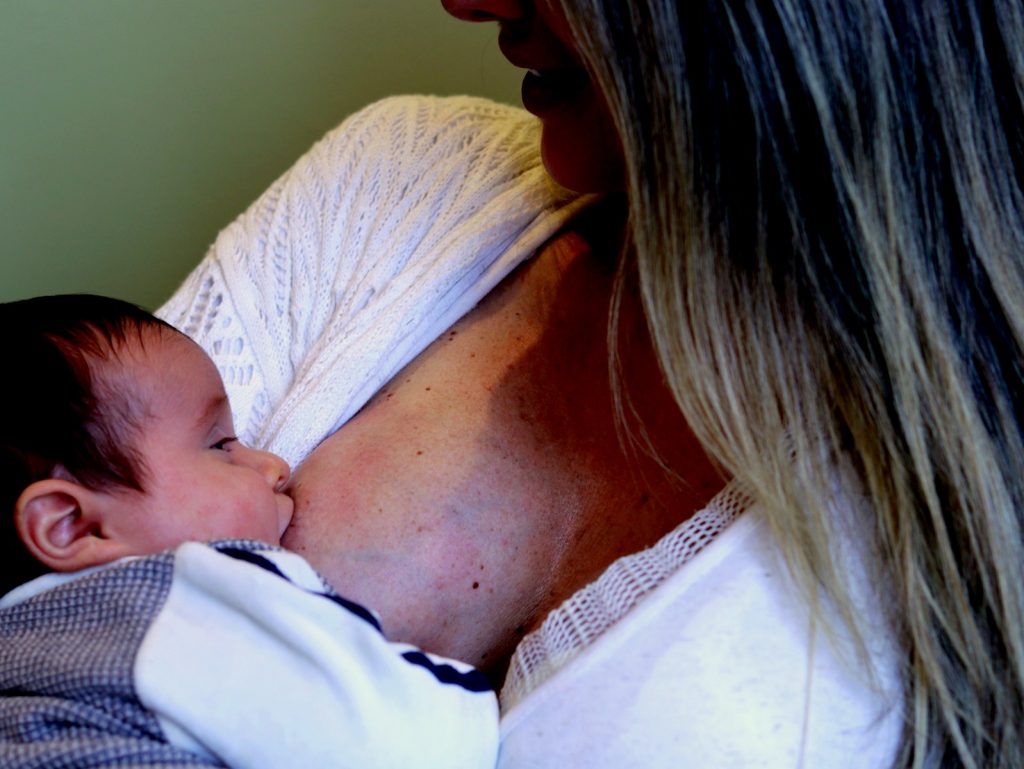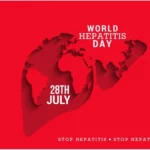World Breastfeeding Week, 1-7 August: Nurturing Health, Empowering Women, and Fostering a Sustainable Future
World Breastfeeding Week, observed from 1st to 7th August each year, is a global initiative that aims to promote and support breastfeeding as an essential cornerstone of sustainable development. Launched by the World Health Organization (WHO) in collaboration with UNICEF, the week-long event celebrates the significance of breastfeeding for maternal and child health, fosters awareness about the benefits of breastfeeding, and advocates for supportive environments for breastfeeding mothers worldwide. In this essay, we will delve into the multifaceted dimensions of World Breastfeeding Week and its role in nurturing health, empowering women, and building a sustainable future for generations to come.
The Significance of Breastfeeding:
Breastfeeding, an integral part of human history, constitutes nature’s most fundamental way of nurturing infants. Breast milk uniquely designs to offer optimal nutrition and immune protection, supporting a child’s growth and development during their crucial early years. It contains essential nutrients, antibodies, and enzymes that safeguard infants from infections and diseases, ensuring their healthy growth and well-being.

Advantages for Maternal and Child Health:
World Breastfeeding Week highlights the myriad benefits of breastfeeding for both mothers and their children. Breastfeeding reduces the risk of gastrointestinal infections, respiratory illnesses, and infant allergies. It also links to a lower risk of obesity and chronic diseases later in life. For mothers, breastfeeding supports quicker postpartum recovery, reduces the risk of breast and ovarian cancer, and assists with child spacing. Breastfeeding fosters a unique bonding experience between mothers and their infants, nurturing emotional and psychological well-being.

Breastfeeding and Sustainable Development Goals (SDGs):
World Breastfeeding Week’s theme often aligns with the United Nations Sustainable Development Goals (SDGs). Breastfeeding plays a direct and pivotal role in contributing to several SDGs, such as Goal 3 (Good Health and Well-Being), Goal 2 (Zero Hunger), Goal 4 (Quality Education), Goal 5 (Gender Equality), and Goal 6 (Clean Water and Sanitation). By actively promoting breastfeeding, we propel the advancement of these global goals, fostering the creation of healthier, more just, and sustainable societies.

Combating Malnutrition and Undernutrition:
Breastfeeding emerges as a formidable tool in the fight against malnutrition and undernutrition, particularly in developing nations. Breast milk is a vital infant lifeline in regions where access to nutritious food is constrained, offering essential nutrients and immunity to combat diseases. World Breastfeeding Week promotes better maternal nutrition and robust support systems, fostering exclusive breastfeeding for six months of an infant’s life.
Empowering Women and Mothers:
Breastfeeding plays a crucial role in empowering women and mothers. World Breastfeeding Week seeks to destigmatize breastfeeding in public spaces and workplaces by promoting breastfeeding as a natural, nurturing process. Empowering women to breastfeed openly and comfortably enhances maternal confidence and promotes gender equality and women’s rights in society.
Addressing Challenges and Barriers:
World Breastfeeding Week also addresses mothers’ challenges and barriers in breastfeeding, tackling issues such as inadequate maternity leave policies, lack of breastfeeding-friendly workplaces, and marketing practices that undermine breastfeeding—the campaign advocates for creating supportive environments that enable mothers to make informed choices and breastfeed successfully.
Cultural Perspectives and Community Support:
Cultural perspectives and community support play significant roles in shaping attitudes toward breastfeeding. World Breastfeeding Week emphasizes the importance of engaging communities, religious leaders, healthcare providers, and policymakers to create an enabling environment for breastfeeding. Breastfeeding can thrive as a natural and integral part of child-rearing practices worldwide by fostering cultural acceptance and understanding.

Global Breastfeeding Initiatives:
During World Breastfeeding Week, various organizations, governments, and non-governmental agencies collaborate to launch breastfeeding initiatives and awareness campaigns. Activities include seminars, workshops, educational programs, and community events to disseminate knowledge about breastfeeding and provide practical support to nursing mothers.

The Role of Healthcare Professionals:
Healthcare professionals play a crucial role in promoting breastfeeding and supporting nursing mothers. World Breastfeeding Week encourages training and capacity-building programs for healthcare providers to ensure they have the knowledge and skills to provide evidence-based guidance to breastfeeding mothers.
Ensuring Breastfeeding-Friendly Workplaces:
Creating a nurturing work environment facilitating breastfeeding is paramount to supporting mothers as they resume work responsibilities. World Breastfeeding Week actively promotes the concept of breastfeeding-friendly workplaces, encompassing essential elements such as sufficient maternity leave, flexible work hours, and designated private areas for expressing breast milk. These supportive policies ensure breastfeeding mothers can seamlessly balance their professional commitments while prioritizing their child’s well-being.

Conclusion:
World Breastfeeding Week is a robust annual celebration and a reminder of the importance of breastfeeding for maternal and child health, empowerment of women, and sustainable development. The week-long campaign unites global communities in advocating for breastfeeding-friendly policies, promoting education about the benefits of breastfeeding, and nurturing a supportive environment for nursing mothers. By recognizing the significance of breastfeeding and its impact on the well-being of both mothers and children, we take significant strides toward building healthier, happier, and more sustainable societies for generations to come.
FAQ about breastfeeding
Q1: What is breastfeeding?
A: Breastfeeding is feeding a baby or an infant with breast milk directly from the mother’s breast.
Q2: Why is breastfeeding important for infants?
A: Breast milk provides essential nutrients, antibodies, and enzymes that support an infant’s growth and development. It helps protect against infections and diseases and promotes overall health.
Q3: What are the benefits of breastfeeding for mothers?
A: Breastfeeding has several benefits for mothers, including quicker postpartum recovery, reduced risk of breast and ovarian cancer, and assistance with child spacing.
Q4: How long should a mother breastfeed her baby?
A: The World Health Organization (WHO) recommends exclusive breastfeeding for the first six months of a baby’s life. Complementary foods can be introduced after six months, while breastfeeding can continue for up to two years or beyond.
Q5: Can breastfeeding be challenging for some mothers?
A: Yes, breastfeeding can be challenging for some mothers due to latching difficulties, sore nipples, or inadequate milk supply. Seeking support from healthcare professionals, lactation consultants, or support groups can help overcome these challenges.
Q6: Are there any foods or beverages that a breastfeeding mother should avoid?
A: Generally, breastfeeding mothers can enjoy a varied and balanced diet. However, some babies may be sensitive to foods the mother consumes, such as dairy or caffeine. The mother may consider adjusting her diet if a baby shows discomfort or allergies.
Q7: Can breastfeeding mothers take medications?
A: Many medications are safe for breastfeeding mothers. However, it is essential to consult a healthcare provider before taking any medications to ensure they are compatible with breastfeeding.
Q8: How does breastfeeding benefit the environment?
A: Breastfeeding has a minimal environmental impact as it requires no packaging, manufacturing, or transportation. It helps reduce waste from formula containers and contributes to a more sustainable future.
Q9: Is breastfeeding possible for adoptive mothers or mothers who can’t produce breast milk?
A: Yes, adoptive mothers or those who can’t produce breast milk can use various options, such as induced lactation, donor milk, or formula feeding. These methods ensure that the baby receives adequate nutrition and care.
Q10: Can fathers play a role in breastfeeding?
A: Fathers cannot breastfeed directly, but they can support breastfeeding mothers. Fathers can assist with household tasks, emotional support, and bonding with the baby to create a nurturing environment for breastfeeding.
Q11: Can breastfeeding be continued while the mother is working?
A: Many working mothers continue to breastfeed by expressing milk and storing it for their baby’s feeds while they are away. Employers can create supportive environments with designated spaces for pumping and breastfeeding breaks.
Q12: Can breastfeeding prevent pregnancy?
A: Breastfeeding can offer some natural contraception but does not guarantee foolproof protection. The Lactational Amenorrhea Method (LAM) depends on meeting specific conditions, and fertility can unpredictably resume. For dependable contraception, individuals should use additional birth control methods.
Q13: Can breastfeeding help with bonding between mothers and infants?
A: Breastfeeding fosters a unique bonding experience between mothers and infants. Skin-to-skin contact and emotional closeness during breastfeeding promote a strong connection between mother and baby.
Q14: Does breastfeeding have long-term health benefits for children?
A: Yes, research indicates that breastfeeding is associated with long-term health benefits for children, including a reduced risk of obesity, diabetes, and specific allergies.
Q15: Can breastfeeding be continued if the mother falls sick?
A: In most cases, breastfeeding can continue if the mother falls sick with minor illnesses. Breast milk is still safe and beneficial for the baby. However, certain diseases may require temporary interruption of breastfeeding under the guidance of a healthcare provider.
*Please note that the information provided in these FAQs is general. For specific breastfeeding concerns or questions, seeking advice from a qualified healthcare professional or lactation consultant is always advisable.
Read also
- 28 July is World Hepatitis Day: Raising Global Awareness and Eliminating the Silent Killer
- Celebrate the International Day of Plant Health and Promote Sustainable Agriculture for a Greener Future


